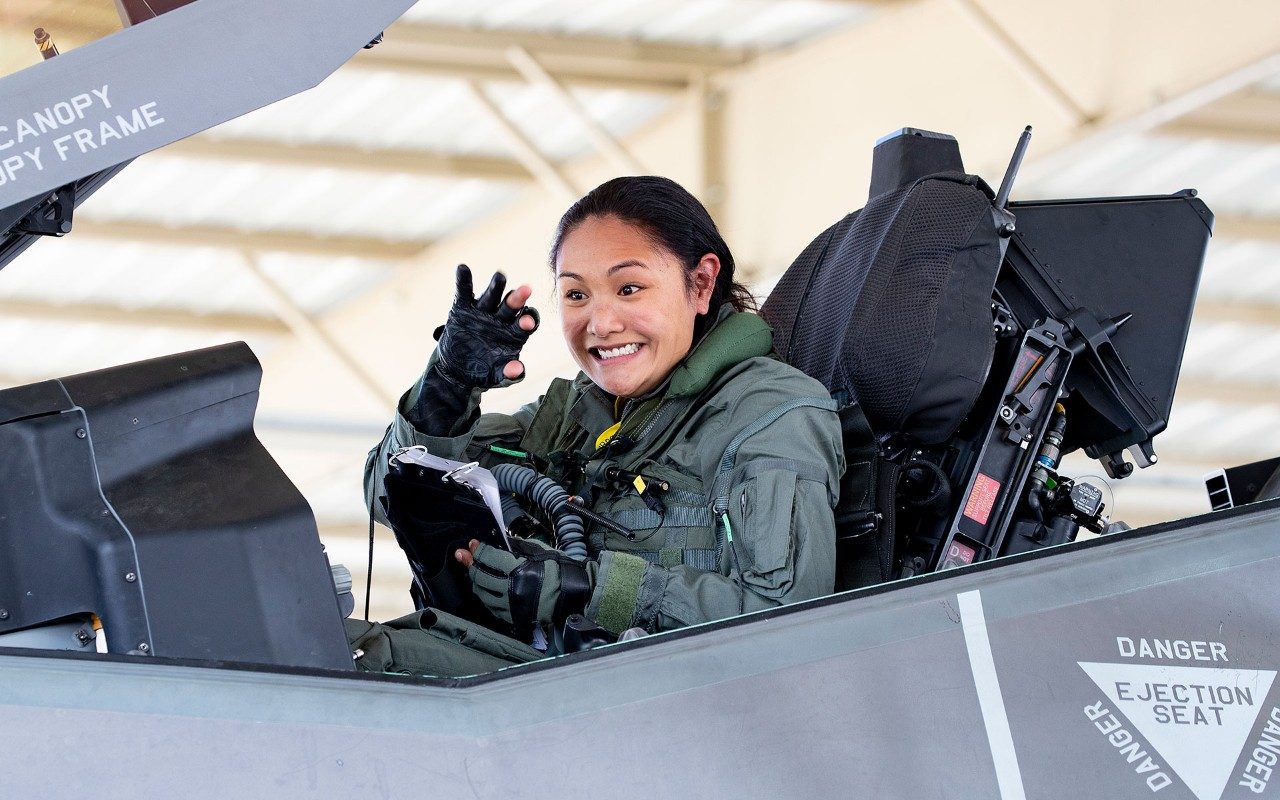Practicing "Extreme Ownership" in All Aspects of Life
Three Leadership Lessons From Fighter Pilot and Mom, "Siren" Balzhiser
We sat down to talk about her experience as a Combat Military Pilot flying the F-16 for the United States Air Force and as a new mother living overseas while her husband was deployed. Transitioning from active duty gave her a valuable new perspective of what happens at home, and she's picked up a few life and leadership lessons along the way.
1. How you deliver the message matters.
No matter how hectic things get in the cockpit - and they can get very hectic! - it's so important to maintain a calm, clear demeanor on the radio. Not only does this ensure there are no miscommunications between pilots, it also sends an important message to people we might be helping. If someone is on the ground radioing for help, clearly under stress, and they hear me respond in a calm, controlled manner, it can give them a sense of confidence that makes a big difference in life-or-death situations.
That's an extreme example, but the same applies in exchanges we all encounter every day. If we present as if our hair is on fire, our teams may think the sky is falling. If we project calm confidence, they can act with the assurance that we're headed in the right direction.
2. Practice extreme accountability.
One of my favorite things about fighter culture is the debrief. After every flight, everyone gets in a room, rank comes off, and we break down every single minute of the mission we just flew. There's no ego; it's all about performance. In the debrief, a lieutenant can tell a lieutenant colonel what they did wrong. That takes a lot of trust. You also learn humility early in your flying career because it's just you in the cockpit; everyone can see all of your mistakes. But it's easier to process when you know that everyone is there to help you get better.
The lesson here is to lead by example and hold yourself accountable. Don't be afraid of admitting your mistakes. Be honest with yourself, and with your team, about why they happened. This can be the difference between a team that continuously improves and a team that sits stagnant behind excuses.
3. Rely on your support networks.
When I became pregnant, everything I knew changed. I could no longer fly fighter aircraft, and soon, I left Active Duty and became a full-time military spouse and mother. It was really, really hard. Especially when my husband deployed for seven months shortly after our daughter was born.
Up to that point, my support system had always been the other pilots, and for the first time, I understood what it felt like to be "left behind". I struggled with it. A lot. But then, a group of people I'd never expected I’d have to rely on stepped in and helped me through: the other spouses. It taught me that when life or work presents us with something new or uncontrollable, help can come from unexpected places. Be open to that. Take the hand that’s offered and extend yours when you can, especially at work.
It opens up a whole new way of looking at things.






